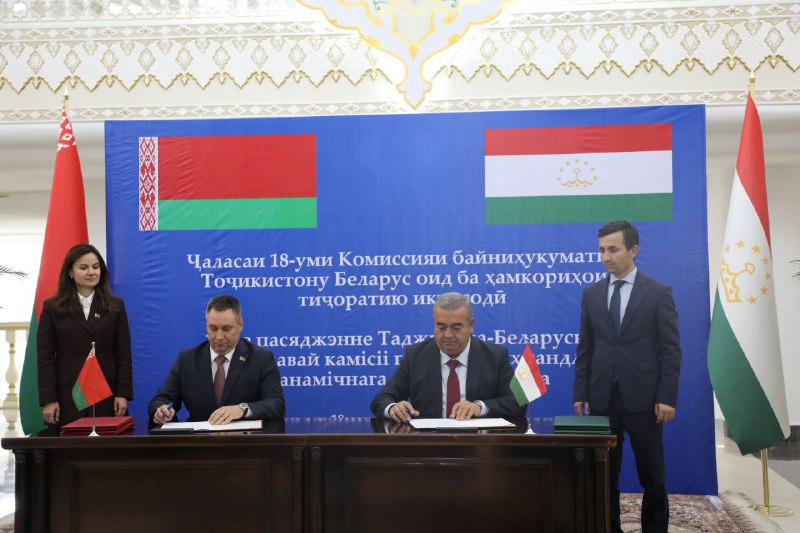Tajikistan, Belarus Sign $16 Million Cooperation Agreements to Boost Trade and Industry

Dushanbe, The Gulf Observer: Tajikistan and Belarus have signed 10 new agreements worth over $16 million to strengthen industrial cooperation and increase the supply of Belarusian goods to the Tajik market. The deals were concluded during the 18th session of the Tajik-Belarusian Intergovernmental Commission on Trade and Economic Cooperation, according to state-run news agency Khovar.
The agreements cover food production, livestock imports, and joint industrial ventures. Key contracts include an agreement between Slutsk Sugar Refinery and Obi Zulol, a livestock partnership between Belplemzhivobyedineniye and Boboi Sharifbek LLC for the supply of Belarusian breeding cattle, and a meat supply deal between Slonim Meat Processing Plant and a state enterprise in Dushanbe. Additional deals were signed for dry milk and whey products from Pruzhany and Glubokoye dairy companies.
Tajik Agriculture Minister Kurbon Hakimzoda underscored the commission’s role in advancing economic ties in the context of Tajikistan’s industrialization, digital reforms, and shift toward a green economy. He noted that industrial output has nearly doubled over the past five years, from 27 billion to 53 billion somonis, while agricultural production rose from 39 billion to 73 billion somonis.
Belarus currently ranks eighth among Tajikistan’s trading partners. From January to July 2025, bilateral trade in food and agricultural raw materials grew by 52% year-on-year. Belarusian exports surged by 54%, driven by a more than sevenfold increase in meat shipments and a fourfold rise in egg and egg product exports. Tajik dried fruits and peanuts remain in strong demand in Belarus.
Belarusian Agriculture Minister Yuri Gorlov highlighted the commission’s importance in promoting investment and collaboration across agriculture, light industry, and pharmaceuticals. Both sides expressed interest in expanding exchanges, with Belarus seeking to increase exports of food, agricultural machinery, and breeding stock, while also importing more fresh and processed produce, nuts, and fruit purée from Tajikistan.
The cooperation framework also includes initiatives in crop farming and livestock breeding, veterinary science, genetics, and agricultural education training programs.


